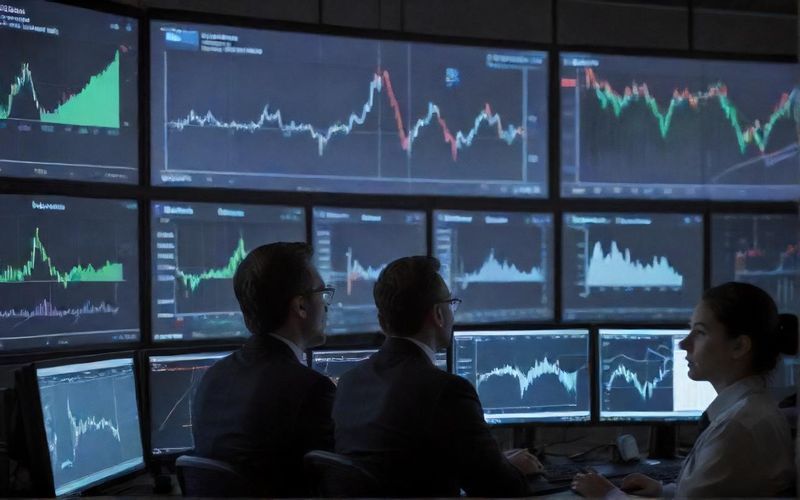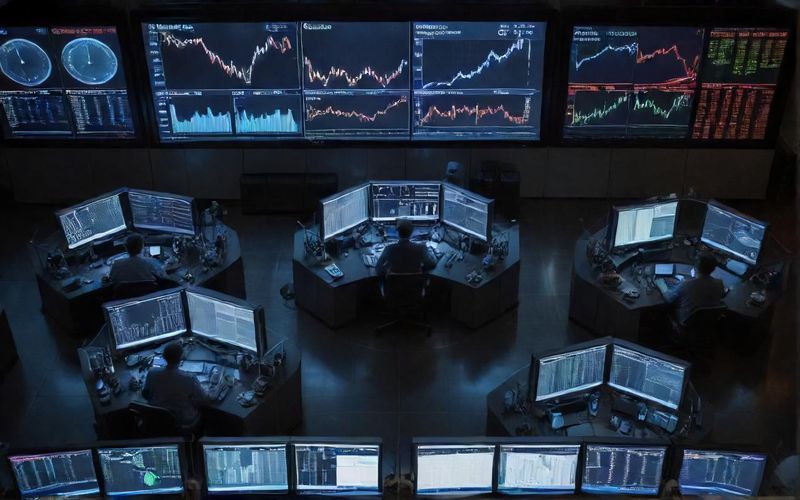Dow Jones Diverges As AI Dominates Wall Street

This AI-driven momentum carried other chipmakers along for the ride. Iren, a data center company, saw its stock jump over 20% following a $9.7 billion deal with Microsoft for Nvidia’s GB300 GPUs. It’s fascinating to see how deeply intertwined these companies are, each partnership and deal creating ripples that affect the entire ecosystem. Analysts are quick to point out that these AI leaders, like Nvidia, Microsoft, Google, and Amazon, are not just participating in this trend; they are actively capturing almost all the value, securing the essential infrastructure and seeing a significant inflection point in demand. They’re not only building their own capacity but also renting it out, creating a symbiotic relationship that benefits all involved.
Yet, beneath this shining surface, a different story was unfolding for the broader market. While the Nasdaq Composite and S&P 500 managed to inch higher, the Dow Jones Industrial Average dipped, pulled down by laggards like UnitedHealth. More tellingly, out of the S&P 500’s 500 components, over 400 were trading in the red. This is what market watchers refer to as weak breadth – a sign that the gains are concentrated in a select few, leaving the majority of companies behind. It’s like a blockbuster movie where only the main stars are getting rave reviews, while the supporting cast is being largely overlooked.
This concentration of gains in the AI trade, while exciting for investors in those specific companies, raises a crucial question: is this sustainable? Gil Luria, head of technology research at D.A. Davidson, highlights that these AI behemoths are able to secure resources and demand, painting a picture of robust individual company performance. However, the underlying concern of a market increasingly reliant on a narrow set of winners persists. It’s a delicate balance, and one that demands close observation as we navigate these seemingly unprecedented technological advancements and their impact on the dow jones stock markets.
Adding another layer of complexity, news of easing trade tensions between the US and China, particularly concerning rare earth minerals, saw companies in that sector tumble. President Trump's assertion that the "rare earth threat — that's gone, completely gone" led to significant drops in stocks like MP Materials and Energy Fuels. This illustrates how geopolitical developments, even those seemingly resolved, can have immediate and substantial effects on specific industries.
Meanwhile, earnings season continues to provide its own set of narratives. While many S&P 500 companies have reported better-than-expected results, demonstrating solid performance across the board, the market’s focus remains heavily skewed towards the tech titans. Even as companies like Berkshire Hathaway report impressive earnings, driven by strong insurance and investment income, and a substantial cash reserve, the broader market sentiment seems to be dictated by the AI narrative. This begs the question: as the dust settles on the current earnings cycle, will the market’s attention broaden, or will the AI wave continue to sweep all else aside, potentially leaving many investors feeling like they're watching a solo performance when they expected a full orchestra?








